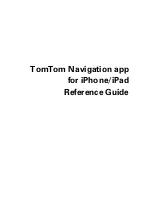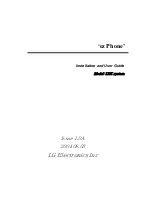
In one batch request, you can have up to two different reference numbers. For example, the following
request snippet exceeds the number of allowed reference numbers in one batch request.
ItemLookup.1.ItemId=0976925524&
ItemLookup.2.ItemId=0485935524&
ItemLookup.3.ItemId=0792335535&
Shared Parameters
There are times when the parameter values for the simple requests in a batch request are the same, for
example,
ItemType=ASIN
. In this case, instead of using a ReferenceNumber for each simple request,
you can substitute the special value, "Shared,", as shown in the following example.
ItemLookup.Shared.ItemType=ASIN
The following parameter declarations show the equivalent of the preceding declaration.
ItemLookup.1.ItemType=ASIN&
ItemLookup.2.ItemType=ASIN
Both forms of the request work but using the special value, Shared, reduces the amount of typing required.
Generally, you only use the Shared value with required parameters. Optional parameters do not need to
be included in the request and their default values, if any, are assumed and thus shared across the simple
requests in the batch request.
Performing Multiple ItemLookups in One Request
The other way to execute multiple
ItemLookup
requests in one request is to use a comma-separated
list of
ItemIds
, for example:
http://webservices.amazon.com/onca/xml?
Service=AWSECommerceService&
AWSAccessKeyId=
[AWS Access Key ID]
&
Operation=ItemLookup&
ItemId=B00008OE6I,B35987036I,B0002546I,B25468OE6I,B09788OE6I,B00453OE6I&
IdType=ASIN&
ResponseGroup=OfferFull&
Condition=All&
&Timestamp=[YYYY-MM-DDThh:mm:ssZ]
&Signature=[Request Signature]
The preceding example shows six
ItemId
s in the request, which means
ItemLookup
will be executed
six times, one for each
ItemId
. You can specify up to ten
ItemId
s.
Tip
Be careful not to introduce spaces before or after the commas in the comma-separated list of
ItemId
s.
API Version 2011-08-01
74
Product Advertising API Developer Guide
Batch Requests
















































